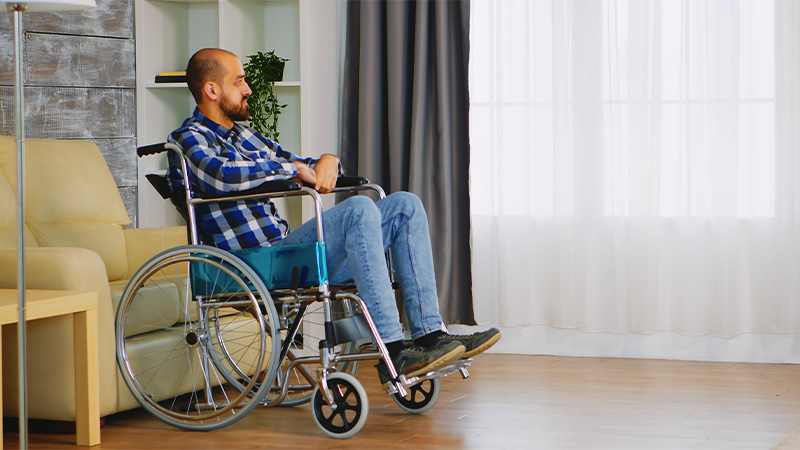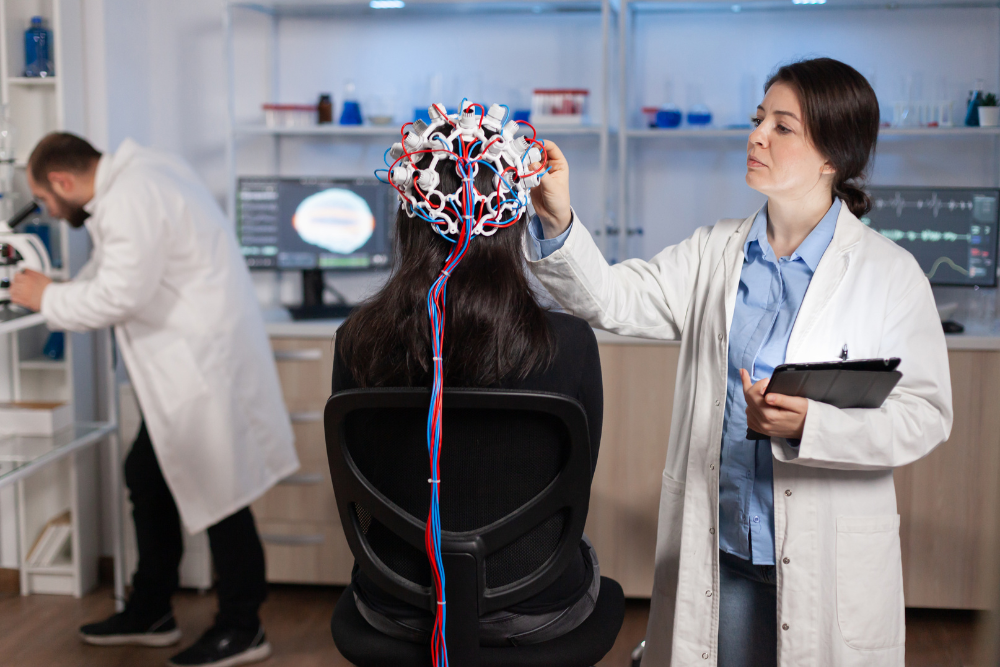Overview
Living with chronic joint pain or an autoimmune condition doesn't have to mean sacrificing your active lifestyle. At Parvathy Hospital, our dedicated Rheumatology department, led by Dr. Balaji C, is committed to empowering you to conquer discomfort and reclaim your quality of life. We offer comprehensive diagnosis, cutting-edge treatment, and compassionate support to help you manage your condition effectively and find renewed strength and mobility.
Common Problems We Address
- Inflammatory arthritis: Rheumatoid arthritis, psoriatic arthritis, ankylosing spondylitis, and gout.
- Autoimmune diseases: Lupus, Sjogren's syndrome, vasculitis, and fibromyalgia.
- Osteoarthritis: Degenerative joint disease causing pain and stiffness.
- Back pain and spine disorders: Sciatica, herniated discs, and spinal stenosis.
- Soft tissue disorders: Tendinitis, bursitis, and carpal tunnel syndrome.
- Osteoporosis: Bone loss leading to increased fracture risk.
- Connective tissue disorders: Ehlers-Danlos syndrome and Marfan syndrome.
Common Symptoms We Treat
- Joint pain, stiffness, and swelling
- Fatigue and weakness
- Fever, chills, and night sweats
- Skin rashes and hair loss
- Dry eyes and mouth
- Difficulty performing daily activities
- Back pain and radicular pain
- Muscle weakness and numbness
- Bone fractures
Treatment Options
We offer a personalized approach to treatment, focusing on managing your symptoms and preventing disease progression. Our range of options includes:
- Medication therapy: Tailored medication regimens to manage pain, inflammation, and disease activity.
- Joint injections: Corticosteroids or hyaluronic acid injections for pain relief and lubrication.
- Physical therapy and rehabilitation: Strengthening exercises, pain management techniques, and adaptive equipment to improve function and mobility.
- Splinting and bracing: Supporting joints and reducing pain.
- Surgical interventions: Minimally invasive joint surgeries in specific cases for long-term pain relief.
- Lifestyle modifications: Dietary adjustments, stress management techniques, and maintaining a healthy weight to support overall well-being.
When to Consult a Doctor ?
Don't wait for your symptoms to worsen. If you experience any of the common symptoms listed above for more than a few weeks, schedule a consultation with a rheumatologist. Early diagnosis and intervention can significantly improve your prognosis and prevent complications.
Call +91 98412 98412 for medical emergencies or 044 2238 2248 / +91 98848 99091 to book an appointment.
General (FAQ) For Rheumatology
The duration of inflammatory arthritis varies among individuals and depends on the specific type of arthritis. Some forms may be short-lived, while others can be chronic and require ongoing management.
While there is no cure for arthritis inflammation, effective treatments and management strategies are available to control symptoms, improve quality of life, and slow disease progression.
Rheumatoid arthritis is a chronic condition, but with advancements in treatment, it can be effectively managed. Achieving remission, where symptoms significantly decrease or disappear, is a goal, but complete cure is rare.
Yes, many individuals live fulfilling lives with autoimmune diseases. Proper management, medication, lifestyle adjustments, and regular medical care can help individuals lead active and healthy lives.
Treatment for osteoarthritis includes a combination of lifestyle modifications, physical therapy, pain management, and medications. In severe cases, surgical options like joint replacement may be considered.
The primary cause of osteoarthritis is the wear and tear of joint cartilage over time. Factors such as age, genetics, joint injuries, and obesity can contribute to its development.
Common spine disorders include herniated discs, spinal stenosis, and scoliosis. Each presents unique challenges and may require different approaches to management.
Yes, spine issues, including herniated discs, spinal stenosis, and other conditions, can lead to back pain. Proper diagnosis and treatment by a healthcare professional are essential for effective management.
Connective tissue disorders, such as rheumatoid arthritis and lupus, are among the most common types of tissue disorders. These conditions affect the body`s connective tissues, leading to a range of symptoms.
The causes of tissue disorders vary and may include genetic factors, environmental triggers, and autoimmune responses. Identifying the specific disorder helps determine appropriate treatment approaches.
Osteoporosis is primarily caused by a loss of bone density, often associated with aging, hormonal changes, and insufficient calcium and vitamin D intake.
Common symptoms of osteoporosis include bone fractures, loss of height over time, stooped posture, back pain, and a reduction in bone mass observed through diagnostic tests like bone density scans.
Diagnosis of connective tissue disorders involves clinical evaluation, blood tests, imaging studies, and sometimes biopsy. Symptoms such as joint pain, fatigue, and skin changes may indicate a connective tissue disorder.
While there is no cure for most connective tissue diseases, treatment focuses on managing symptoms, slowing disease progression, and improving overall quality of life through medications, lifestyle changes, and other therapeutic interventions.















